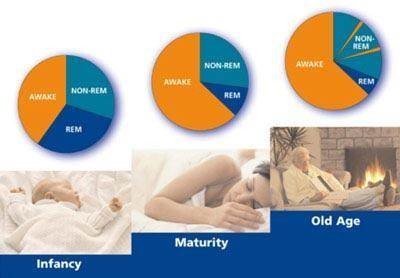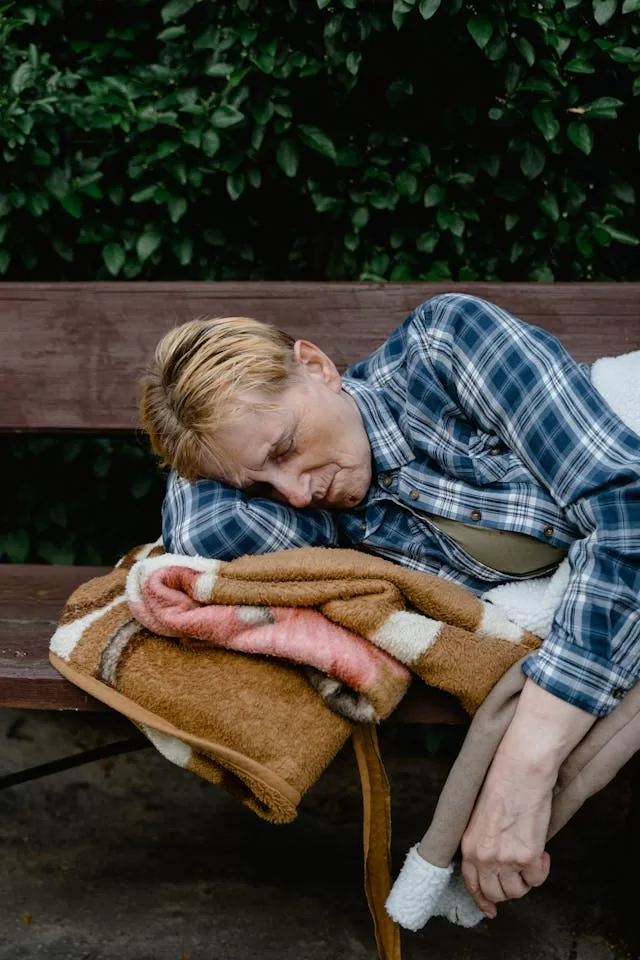Sleep issues are common among aging individuals, especially those above 65. Insomnia is the most common issue. As one gets older, changes in sleep patterns can be experienced due to several factors. This impacts health in several ways.
Good uninterrupted sleep is very essential to physical health and emotional well-being. Therefore, understanding the connection between sleep and aging, and the underlying causes of sleep problems can help treat the issue and improve the quality of sleep.

Common factors that affect the sleep of aging people
Poor Habits
Irregular patterns associated with sleep and waking up can have a serious impact on one’s circadian rhythm. This leads to difficulty in maintaining a healthy sleep schedule. Poor lifestyle habits such as long naps during day time, indulgence in smoking and/or alcohol before bedtime, spending a lot of time awake in the bed, watching TV for long hours, etc. tend to have a negative impact on one’s sleep.
Health Conditions
As one gets older, chronic health conditions can become common. Most people above the age of 60 suffer from conditions such as arthritis, heart failure, menopause, heartburn, and Alzheimer’s disease. All of these are known to be potential sleep interrupters. These conditions make one wake up frequently, affecting the quantity and the quality of sleep.
Medications
Sleep and aging problems are also closely associated with medications. Some of the medications taken for health conditions (prescribed or non-prescribed) can keep you awake for hours.
Stress
Getting older comes with a lot of stress from major transitions in life. Financial issues, illnesses, death of loved ones, etc., lead to stress which further affects sleep.

Retirement from Work
Retirement from the job can bring lifestyle changes in one’s life such as getting up late in the morning, starting the day late, eating habits, social life, and much more. Being less active during the day also affects the sleep cycle.
The Solution
Here are some steps you can take in order to get rid of sleep and aging-related issues:
Warm Bath
It is good to take a warm relaxing bath. Soak yourself up in a bathtub. Getting out of the tub drops body temperature which may help you relax and slow down to prepare you to go to bed.
Calm Down and Reduce Stress
Do not rush to the bed and try hard to fall asleep. Spare some time to calm down. Turn off electronic devices and TV. Keep the mobile phone away. It is helpful to read a book or listen to some soothing music. Do some yoga or meditation to keep stress at bay.
Bedroom Makeover
Turn your bedroom into a cozy sleep zone. Keep everything off your bed. Laptops, phones, and other devices should not be on your bed. Maintain comfortable temperature and avoid using the bed for office or other purposes.
No Naps
Strictly avoid afternoon naps. Sleeping during the day will make it tough for you to sleep at night.
No Alcohol
Abstain from drinking alcohol at bedtime. You may wake up in the middle of the night and be awake until morning.
Sun is Important

Get some amount of sunlight daily. It is good to feel happy and relaxed which will improve your sleep schedule.
Fewer Fluids
A lot of fluid can make you take frequent trips to the bathroom at night, interrupting your sleep.
To Sum Up
Though sleep and aging are interconnected, with the right lifestyle habits as mentioned above, one can take care of sleep issues and enjoy a healthy life.
References:
https://my.clevelandclinic.org/health/articles/12227-sleep–aging
https://www.webmd.com/sleep-disorders/guide/aging-affects-sleep#2
5 Top Causes of Sleep Problems in Aging, & Proven Ways to Treat Insomnia




